 W
WBatman: Arkham Origins is a 2013 action-adventure game developed by WB Games Montréal and published by Warner Bros. Interactive Entertainment. Based on the DC Comics superhero Batman, it is the follow-up to the 2011 video game Batman: Arkham City and is the third main installment in the Batman: Arkham series. Written by Corey May, Ryan Galletta and Dooma Wendschuh, the game's main storyline is set eight years before 2009's Batman: Arkham Asylum and follows a younger, less-refined Batman. When a bounty is placed on him by crime lord Black Mask, drawing eight of the world's greatest assassins to Gotham City on Christmas Eve, Batman must bring Black Mask to justice, while also being hunted by the police and having to face other villains, such as the Joker and Anarky, who take advantage of the chaos to launch their own nefarious schemes.
 W
WTom Clancy's Splinter Cell: Chaos Theory is a stealth game developed by Ubisoft Montreal and Ubisoft Milan and released in March 2005 for the Xbox, PlayStation 2 (PS2), GameCube and Microsoft Windows. Handheld versions for the Nintendo DS, mobile, and N-Gage were also released. A Game Boy Advance port was planned, but later cancelled.
 W
WThe Chrono series is a video game franchise developed and published by Square Enix. It began in 1995 with the time travel role-playing video game Chrono Trigger, which spawned two continuations, Radical Dreamers and Chrono Cross. The music of Chrono Cross was composed by Yasunori Mitsuda, the main composer of Chrono Trigger and Radical Dreamers. Chrono Cross has sparked a soundtrack album, released in 1999 by DigiCube and re-released in 2005 by Square Enix, and a greatest hits mini-album, published in 2000 by Square along with the North American release of the game. Radical Dreamers, the music of which heavily inspired the soundtrack of Chrono Cross, has not sparked any albums, though some songs from its soundtrack were reused in Chrono Cross. An album of arrangements of Chrono Cross songs was first announced by Mitsuda in 2005, and later intended to be released to coincide with the tenth anniversary of the game in 2009; its release date was pushed back several times since then. In 2015, Mitsuda released an album of arranged music from Chrono Trigger and Chrono Cross entitled To Far Away Times to commemorate the 20-year anniversary of Chrono Trigger.
 W
WThe Chrono series is a video game franchise developed and published by Square Enix. It began in 1995 with the time travel role-playing video game Chrono Trigger, which spawned two continuations, Radical Dreamers and Chrono Cross. The music of Chrono Trigger was mainly composed by Yasunori Mitsuda, with a few tracks composed by regular Final Fantasy composer Nobuo Uematsu. The Chrono Trigger soundtrack has inspired four official album releases by Square Enix: a soundtrack album in released by NTT Publishing in 1995 and re-released in 2004, a greatest hits album published by DigiCube in 1999, published in abbreviated form by Tokyopop in 2001, and republished by Square Enix in 2005, an acid jazz arrangement album published and republished by NTT Publishing in 1995 and 2004, and a 2008 orchestral arranged album by Square Enix. Corresponding with the Nintendo DS release of the game, a reissued soundtrack was released in 2009. An arranged album for Chrono Trigger and Chrono Cross, entitled To Far Away Times, was released in 2015 to commemorate the 20 year anniversary of Chrono Trigger.
 W
WCreid is the arranged soundtrack to Square's role-playing video game Xenogears. It was written by the game's composer Yasunori Mitsuda and performed by a musical ensemble dubbed Millennial Fair. It was released on April 22, 1998 in Japan by DigiCube, and re-released by Square Enix on June 29, 2005. Comprising ten tracks arranged from the Xenogears Original Soundtrack, the album is mostly done in Irish or Celtic music style, with minor influences of Japanese rock according to Mitsuda. Artists from Japan and Ireland were recruited for the project. Four of the five vocal tracks on the album were written by Junko Kudo and sung by Tetsuko Honma, while the title track "Creid" was written by Mitsuda and performed by Eimear Quinn.
 W
WThe Dead Space 2 Original Videogame Score is an official soundtrack album to the 2011 survival horror video game Dead Space 2. Released on January 25, 2011, by Electronic Arts, the album includes 14 tracks from the game composed by Jason Graves. A second album entitled Dead Space 2 Collector's Edition Original Soundtrack was also released, with a further 18 compositions from Dead Space 2. All music was performed by members of the Skywalker Symphony Orchestra, which also performed on the Dead Space Original Soundtrack.
 W
WThe Dead Space Original Soundtrack is the official soundtrack album to the 2008 survival horror video game Dead Space. Released on November 11, 2008 by Electronic Arts, the album features 17 tracks from the game composed by Jason Graves. The soundtrack was compiled from over three hours of music from the game, performed by the Northwest Sinfonia and the Skywalker Symphony Orchestra and recorded at Bastyr Chapel and Skywalker Sound Scoring Stage in Redwood Shores, California.
 W
WDeath Stranding: Timefall is a soundtrack album for the 2019 action game, Death Stranding. Featuring eight songs from various artists, it was released on November 7, 2019 in digital stores, through RCA Records and Sony Interactive Entertainment.
 W
WDeltarune, Chapter 1 is a soundtrack album of music from the first chapter of Deltarune, a role-playing video game created and scored by Toby Fox. The game was initially released on October 31, 2018 for Microsoft Windows and macOS, and the soundtrack album was released on Bandcamp the same year. In collaboration with Fangamer, Fox released the game's soundtrack on vinyl in 2019.
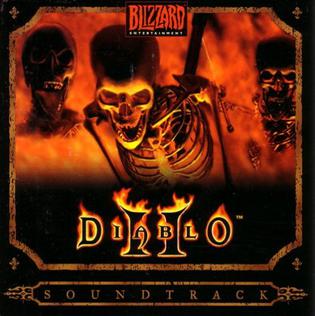 W
WDiablo II Soundtrack is the soundtrack of video game music from Diablo II (PC). It features music composed by Matt Uelmen for the game. It was released on June 30, 2000 as part of the Diablo II Collector's Edition, and later on iTunes.
 W
WEmperor: Battle for Dune is a Dune video game, released by Westwood Studios on June 12, 2001. It is based in Frank Herbert's science fiction Dune universe. It is the third real-time strategy game set in the Dune universe, following its predecessors, Dune II and Dune 2000. While Dune II was a totally distinct story to that of Dune, and Dune 2000 was a remake of Dune II, Emperor is a direct sequel to the previous games. In particular, it is a sequel to Dune 2000, carrying on from where it left off, with several of the characters and actors returning. Like Dune 2000 and many of the other Westwood games that came before it, Emperor features cut scenes filmed with live actors.
 W
WEnemy Zero is a 1996 survival horror adventure video game for the Sega Saturn, developed by Warp and directed by Kenji Eno. After its Saturn release, it was ported to Microsoft Windows. It was the second game to star the "digital actress" Laura, the first being D, and the third being D2. Laura is voiced by Jill Cunniff of the band Luscious Jackson in the English versions and Yui Komazuka in the Japanese version.
 W
WFinal Fantasy Mystic Quest, released as Mystic Quest Legend in PAL regions and as Final Fantasy USA: Mystic Quest in Japan, is a role-playing video game for the Super Nintendo Entertainment System. The game was released as a spin-off to Square's Final Fantasy series of video games. Final Fantasy Mystic Quest was first released in North America in 1992 and marketed as a "simplified role-playing game... designed for the entry-level player" in an attempt to broaden the genre's appeal. The game's presentation and battle system is broadly similar to that of the main series, but it differs in its inclusion of action-adventure game elements. Final Fantasy Mystic Quest was the first Final Fantasy game to be released in Europe.
 W
WThe Greatest Video Game Music, performed by the London Philharmonic Orchestra, features classical orchestrations of video game themes including those from Super Mario Bros., Call of Duty, Metal Gear Solid, Final Fantasy, Halo, World of Warcraft, Angry Birds and many more. A sequel, The Greatest Video Game Music 2 was released a year later.
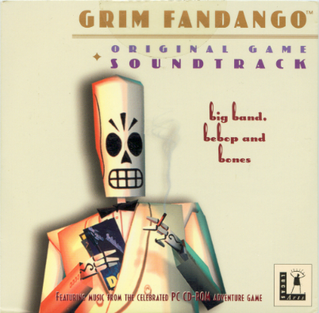 W
WThe music for the video game Grim Fandango was composed and produced by Peter McConnell and published by LucasArts in 1998. The soundtrack is a mix of South American folk music, jazz, swing and big band sounds, for the game story filled with adventure and intrigue set in a unique combination of film noir and Mexican folklore's Day of the Dead. The soundtrack garnered critical acclaim and remained subject of positive reviews and inclusion in critics' rankings for the two decades after its first release. The soundtrack was praised both as a stand-alone musical experience, as well as for its outstanding contribution to the overall game experience; capturing the spirit of the game, "gluing" the story together, and becoming "integral" to the success of the game.
 W
WThe Halo 2 Original Soundtrack is the soundtrack for Bungie's 2004 video game Halo 2. The soundtrack was released as two separate volumes, released almost two years apart. Volume 1, released at the same time as Halo 2 on November 9, 2004, contains arranged instrumental pieces written by Martin O'Donnell and his partner Michael Salvatori, as well as "inspired-by" tracks from bands Incubus, Hoobastank and Breaking Benjamin. Volume 2 was released on April 25, 2006 and contains all the game music arranged in a suite form.
 W
WHalo 3 Original Soundtrack is the official soundtrack to Bungie's first-person shooter video game Halo 3. Most of the original music was composed by Martin O'Donnell and Michael Salvatori, but also includes a bonus track, "LvUrFR3NZ", which was the winning entry in a contest held before the soundtrack's release. The 2-CD set was released on November 20, 2007.
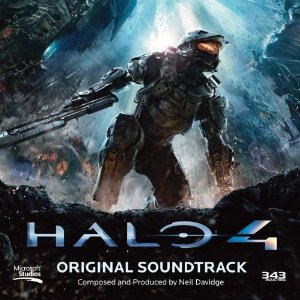 W
WThe Halo 4 Original Soundtrack is the official soundtrack to the first-person shooter video game Halo 4, developed by 343 Industries and published by Microsoft Studios. British record producer Neil Davidge was Halo 4's main composer and producer. The soundtrack was released on October 19, 2012 in Australia and New Zealand, and October 22 everywhere else. A second volume containing more of the score was released digitally on April 8, 2013.
 W
WThe Halo Original Soundtrack is a soundtrack for the video game Halo: Combat Evolved. Composed and produced by Martin O'Donnell and Michael Salvatori for Bungie, the soundtrack was released on June 11, 2002. Most of the music from Halo: Combat Evolved is present on the CD, although some songs have been remixed by O'Donnell in medley form for "more enjoyable" listening. The first piece O'Donnell wrote, known as "Halo", became the basis for Halo's "signature sound" which has been heard in the other games of the main trilogy.
 W
WImaginarium: Songs from the Neverhood is the title of a soundtrack CD released in 2004 on Stunt Records. The 2-disc collection includes 77 songs performed by Daniel Amos frontman Terry Scott Taylor for the Doug TenNapel-created video games The Neverhood, Skullmonkeys and BoomBots. Also included are several early demos of songs that were later recorded for the video game soundtracks, as well as some songs that were left off. Also included is the theme song to the animated television pilot, Geekdad.
 W
W"Jordan" is a musical composition by American musician Buckethead. Originally featured as a playable track on the 2006 music video game Guitar Hero II, "Jordan" was officially released as a downloadable single via iTunes on August 18, 2009.
 W
WThe music of the Kingdom Hearts video game series was composed by Yoko Shimomura with orchestral music arranged by Kaoru Wada. The original soundtracks of the games have been released on three albums and a fourth compilation album. The soundtracks to the Kingdom Hearts games feature several musical pieces from both Disney films and Final Fantasy games, including such pieces as "Mickey Mouse Club March" by Jimmie Dodd, "This Is Halloween" by Danny Elfman, and "One-Winged Angel" by Nobuo Uematsu. They also feature several vocal songs, the most notable being the four main theme songs: "Hikari", "Passion", "Chikai", and "Face My Fears." The two themes were written and performed by Japanese American pop star Utada Hikaru; in addition to Japanese, English versions of the first two songs were produced, titled "Simple and Clean" and "Sanctuary", respectively.
 W
WMedal of Honor is a soundtrack album of Ramin Djawadi from the 2010 first-person shooter video game Medal of Honor. The first official single from the soundtrack was Linkin Park's song "The Catalyst", which was used to promote the game. An extended version of the soundtrack was released in the Medal of Honor Soundtrack Collection, which contains all of the music in the Medal of Honor franchise released up to that point and was released on March 1, 2011.
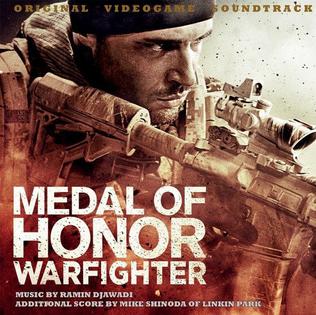 W
WMedal of Honour: Warfighter is the soundtrack composed by Ramin Djawadi and featuring Linkin Park's co-vocalist Mike Shinoda to the 2012 first-person shooter video game of the same name.
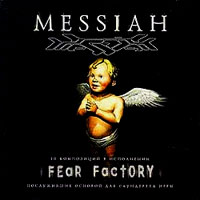 W
WMessiah is a compilation album by American industrial metal band Fear Factory released in 1999 by Roadrunner Records. It includes one song from Soul of a New Machine, six from Demanufacture, two from Remanufacture and one bonus track from Obsolete. It is the soundtrack to the video game, Messiah.
 W
WMortal Kombat: Songs Inspired by the Warriors is a compilation album featuring songs inspired by the iconic warriors from the Mortal Kombat game series. The soundtrack coincided with the release of the 2011 installment in the video game series, Mortal Kombat. Similar to the 1994 release of Mortal Kombat: The Album, the music is electronic and dance based.
 W
WMortal Kombat: The Album is a soundtrack album by The Immortals, released in 1994 to accompany the home versions of the video game Mortal Kombat. Television commercials for the home versions included a brief plug for the album at the end.
 W
WMyth: The Xenogears Orchestral Album is an arranged soundtrack to Square Enix's role-playing video game Xenogears. It is the third soundtrack to the game, after Xenogears Original Soundtrack and Creid, another arranged album, both released in 1998. Myth was composed by the game's composer Yasunori Mitsuda and arranged by Mitsuda, Youki Yamamoto, Sachiko Miyano, and Natsumi Kameoka. The album contains 14 tracks, including a song performed by the Irish singer Joanne Hogg, and has a length of 51:33. The orchestration was performed by the Bulgarian Symphony Orchestra, conducted by Yamamoto. The album was announced in October 2010, and was released on February 23, 2011 by Square Enix. A vinyl record version of the album was released on April 1, 2011, consisting of six tracks from the full album.
 W
WN2O: Nitrous Oxide, known in Europe as just N2O, is a tunnel shooter, featuring a soundtrack composed by the American electronic music duo The Crystal Method. The soundtrack was heavily used to promote the game, and the music is stored in Red Book format meaning the game disc can be played as a music CD on an ordinary CD player.
 W
WNinety-Nine Nights,, is a 2006 fantasy hack and slash video game developed for the Xbox 360 by an alliance between Q Entertainment and Phantagram; video game designer Tetsuya Mizuguchi served as producer for the game. The game features hundreds of enemies onscreen at any given time, and borrows heavily from other video games of the genre, most notably from the Dynasty Warriors and Kingdom Under Fire series.
 W
WThe music of Rocket League, a vehicular soccer video game developed and published by Psyonix, is a compilation of electronic dance music (EDM) produced and curated by Psyonix audio director Mike Ault. It currently features music from 45 different artists, and has spawned a discography of four albums and four extended plays. The original soundtrack was produced by Ault and his band Hollywood Principle. Ault, having experimented with different genres, used personal projects unrelated to Rocket League as a base for the soundtrack. What followed was an EDM soundtrack inspired by early-to-mid 2000s progressive house music that Ault and Psyonix felt "embodied the spirit of the game." When in-game, the music is controlled using the playlist system "Rocket League Radio". Positive feedback from players, in addition to Ault's vision of a "big budget" playlist sound emulating Triple-A sports games such as the EA Sports titles, inspired him and the team to feature independent artists to be included in Rocket League's soundtrack. Ault credits the success of the soundtrack to the appeal of the EDM genre to the game's player base. In 2017, Canadian EDM label Monstercat partnered with Psyonix and began to feature its artists, and their music, in Rocket League, with multiple volumes featuring the music being released by the label.
 W
WThe music of Rocket League, a vehicular soccer video game developed and published by Psyonix, is a compilation of electronic dance music (EDM) produced and curated by Psyonix audio director Mike Ault. It currently features music from 45 different artists, and has spawned a discography of four albums and four extended plays. The original soundtrack was produced by Ault and his band Hollywood Principle. Ault, having experimented with different genres, used personal projects unrelated to Rocket League as a base for the soundtrack. What followed was an EDM soundtrack inspired by early-to-mid 2000s progressive house music that Ault and Psyonix felt "embodied the spirit of the game." When in-game, the music is controlled using the playlist system "Rocket League Radio". Positive feedback from players, in addition to Ault's vision of a "big budget" playlist sound emulating Triple-A sports games such as the EA Sports titles, inspired him and the team to feature independent artists to be included in Rocket League's soundtrack. Ault credits the success of the soundtrack to the appeal of the EDM genre to the game's player base. In 2017, Canadian EDM label Monstercat partnered with Psyonix and began to feature its artists, and their music, in Rocket League, with multiple volumes featuring the music being released by the label.
 W
WThe music of Rocket League, a vehicular soccer video game developed and published by Psyonix, is a compilation of electronic dance music (EDM) produced and curated by Psyonix audio director Mike Ault. It currently features music from 45 different artists, and has spawned a discography of four albums and four extended plays. The original soundtrack was produced by Ault and his band Hollywood Principle. Ault, having experimented with different genres, used personal projects unrelated to Rocket League as a base for the soundtrack. What followed was an EDM soundtrack inspired by early-to-mid 2000s progressive house music that Ault and Psyonix felt "embodied the spirit of the game." When in-game, the music is controlled using the playlist system "Rocket League Radio". Positive feedback from players, in addition to Ault's vision of a "big budget" playlist sound emulating Triple-A sports games such as the EA Sports titles, inspired him and the team to feature independent artists to be included in Rocket League's soundtrack. Ault credits the success of the soundtrack to the appeal of the EDM genre to the game's player base. In 2017, Canadian EDM label Monstercat partnered with Psyonix and began to feature its artists, and their music, in Rocket League, with multiple volumes featuring the music being released by the label.
 W
WScott Pilgrim vs. the World: The Game is a side-scrolling beat 'em up game developed by Ubisoft Montreal and Ubisoft Chengdu and published by Ubisoft, based on the Scott Pilgrim series of Oni Press graphic novels by Bryan Lee O'Malley and tying in with the release of the film of the same name. The game was originally released digitally for Xbox 360 and PlayStation 3 in August 2010 before being delisted in December 2014. An updated re-release for PlayStation 4, Xbox One, Nintendo Switch, Microsoft Windows, and Stadia, titled Scott Pilgrim vs. the World: The Game - Complete Edition, is scheduled for release on January 14, 2021.
 W
W"Si Una Vez" is a song recorded by Mexican-American recording artist Selena for her fourth studio album, Amor Prohibido (1994). It was written by Pete Astudillo and produced by Selena's brother-producer A.B. Quintanilla. "Si Una Vez" is a mariachi fusion song and draws influence from cumbia and Latin dance music. Lyrically, Selena questions why she ever fell in love with an abusive partner, saying she will never repeat her mistakes. The lyrics suggest unrequited love and female empowerment.
 W
WThe Streets of Rage series of beat 'em up action video games by Sega are known for their memorable in-game electronic music, produced by noted video game music composer Yuzo Koshiro. The series has inspired three soundtracks featuring music from the games.
 W
WTony Hawk's American Wasteland is a skateboarding video game developed by Neversoft and published by Activision. It is the seventh entry in the Tony Hawk's series and was released initially for the GameCube, PlayStation 2 and Xbox on October 18, 2005 in North America and October 28, 2005 in Europe, with several ports for other systems released later.
 W
WTrue Crime: Streets of LA is a 2003 open world action-adventure video game developed by Luxoflux for PlayStation 2, Xbox and GameCube. It was ported to Microsoft Windows by LTI Gray Matter, to mobile by MFORMA, and to macOS by Aspyr. It was published for all systems by Activision, except the macOS version, which was published by Aspyr. The PlayStation 2, Xbox and GameCube versions were released in November 2003, the PC version in May 2004, the mobile version in November 2004 and the macOS version in March 2005.
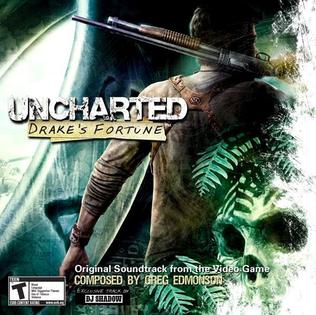 W
WUncharted: Drake's Fortune Original Soundtrack from the Video Game is the soundtrack to the 2007 action-adventure video game Uncharted: Drake's Fortune, developed by Naughty Dog. Composed by Greg Edmonson and performed by the Skywalker Session Orchestra, it was released on November 20, 2007 by the game's publisher, Sony Computer Entertainment.
 W
WVagrant Story is an action role-playing game developed and published by Square for the PlayStation video game console. The game was released in 2000, and has been re-released through the PlayStation Network for the PlayStation 3, PlayStation Portable and PlayStation Vita consoles. Vagrant Story was primarily developed by the team responsible for Final Fantasy Tactics, with Yasumi Matsuno serving as producer, writer and director.
 W
WVoices of the Lifestream is an unofficial tribute album released by OverClocked ReMix in honor of Nobuo Uematsu's score for the popular video game, Final Fantasy VII. The album was released on September 14, 2007, to coincide with the 10th anniversary of Final Fantasy VII. Since its release, the collection has received praise from numerous video game sites and professional composers.
 W
WWolfenstein: The New Order is the soundtrack to the video game Wolfenstein: The New Order. The soundtrack was released on 19 May 2014, consisting of an original score featured in the game. Composer Mick Gordon took inspiration from multiple sources while producing the soundtrack, ultimately creating over six hours of music. Critical reception to the soundtrack was positive, as reviewers considered that the music had been appropriated effectively for gameplay.
 W
WThe Xenogears Original Soundtrack is the official soundtrack to Square's role-playing video game Xenogears. It was composed by Yasunori Mitsuda and contains 44 tracks, including a Bulgarian choral song and two pieces performed by the Irish singer Joanne Hogg. Though the game was released in both Japan and North America, the album was published in Japan exclusively as a two-CD set on March 1, 1998.